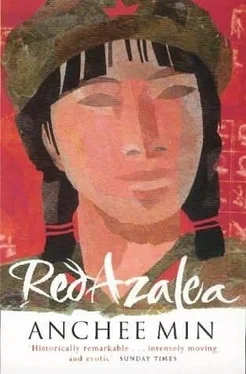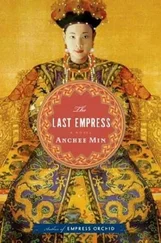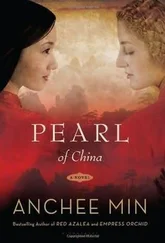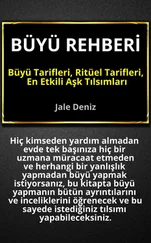I felt as if I were one of those stiff nuts. Instead of growing, I was shrinking. I resisted the shrinking. I turned to Orchid. I was thirsty. Orchid was eager to make friends with me. She invited me to sit on her bed. She chatted about patterns for knitting. She talked nonstop. She told me that it was her fourth time knitting the same sweater. She showed me the details of the patterns and said once she finished it, she would take it apart and reknit it, using the same yarn over. She said knitting was her biggest pleasure in life. She must knit. Nothing else interested her. She fixed her eyes on the needles. She did not go beyond that. Her moving fingers reminded me of a cricket chewing grass. I stared at the yarn being eaten, inch by inch. I suggested we talk about something else-for example, opera. She refused to hear me. She kept talking while her hands were busy working on the sweater. The cricket chewed the yarn, inch by inch, hour after hour, day in, day out. I began to talk about the opera. I sang “Let’s Learn from the Green Pine Tree on Top of the Tai Mountain.” Orchid dozed off. She slid down into her net. She snored, loudly. She made me want to murder her. Imagining this was how I would have to live the rest of my life drowned me in madness.
I saw Yan setting out alone for the fields in the late evenings carrying a jar. One day in heavy fog I decided to follow her. I waited in the sea of reeds. She came, carrying a brown-colored jar. She sought something at the root of the reeds. She was trying to catch poisonous water snakes. She was quick and nimble. She put the snakes in the jar. I followed her. Mile after mile. Led by the myths she radiated. I hid and smelled the reeds, the sea, the fog and the night. I followed her the next day. Miles in the reeds. My sleep got better. I was curious about Yan’s intention, her reason for risking her life to catch the snakes.
It had poured all day. We were ordered to wait in the room until the sky cleared up. As I sat, I prayed to the god of weather to have the rain last as long as possible. Only when it rained were we allowed to rest. When it did rain, I would be so relieved. I would run out of the room, raise up my face, stretch my arms toward the sky to feel, to taste and to say thank you to the rain. I would let the rain pour on my face, sink into my hair, go down my neck, waist, legs, my toes.
As I sat by the window, I got lost in my thoughts, staring at the willow tree. The rain turned to mao-mao-yu-“cow-hair rain,” as the peasants called it. I stared at a window opposite mine. It was the window of the room of the company heads. Yan’s window. The window intrigued me. I often wondered how the people lived behind that window. I knew them well in uniforms but not in their mosquito nets. What about their nights? Were any of their nights like mine?
The opposite window opened. I backed myself into my net. I watched through the curtain. It was the commander. She stuck an arm out. She was feeling the rain. She raised her chin toward the gray sky. Her eyes shut. She held that pose. It was such a private pose. Between her and the sky. Was she feeling the same way I was feeling: lonely and depressed? After Little Green went mad, my worship for Yan had turned sour. My sorrow for Little Green had transformed itself into anger toward Yan. I decided that Yan was no longer worth my respect. She was the murderer, although so was I. But she did it intentionally, and that was unforgivable. I executed her decision. Yet there was a stubbornness that grew inside of me. I found myself refusing to think that Yan was not worthy of my respect. For some strange reason I felt that I still needed Yan to be my heroine. I must have a heroine to worship, to follow, to act as a mirror. It was how I was taught to live. I needed it the same way Orchid needed knitting, to survive, to get by.
I developed a desire to conquer Yan. More truthfully, to conquer myself, because Yan symbolized my faith. I wanted her to tell me what it was that drove her to take such cruel action against Little Green; I wanted to tear away her Party secretary’s mask, to see what was inside her head. I wanted her to surrender. I was obsessed.
She suddenly turned toward my direction and stopped. She saw me staring at her. She put a finger into her mouth and whistled, Yan, the commander, whistled to order everyone to get back to work in the fields. She whistled. She drove away my thoughts. She closed the window without a wave of her hand, a word, a nod, a hint of anything.
The rain had stopped. The sky was loaded with heavy dark clouds. The clouds looked as if they were about to fall upon our heads. The clothes I put out to dry before going to bed were wet and muddy. I took them down from the string and put them on, then dragged myself to the field.
We were transplanting rice shoots. We worked for three hours without a break. I was working the edge of the field and noticed a trace of blood in the muddy water. I tracked the blood and found Orchid down on her knees in the water, her pants bloody red. Orchid always had problems with her period. It could last for half a month, bleeding her to exhaustion. She told me that she hadn’t understood what her period was when it first came. She felt too ashamed to ask anyone for advice. She stuffed unsterilized clothes into her pants. The blood was blocked but she got an infection. I asked her why she hadn’t told her mother or a friend about it. She said her mother was in a labor camp and her friend knew even less than she. Her friend was not sure whether Chairman Mao was a man or a woman.
I asked Orchid why she had not asked the platoon leader for a day off. She said she did. She was rejected. The head sent her to Lu, and Lu said that the transplanting had to be completed by midnight or we would lose the season. I told Orchid that I thought Lu was an armchair revolutionary who demanded other people be Marxists when she herself was a revisionist. Orchid disagreed. She said Lu was tough on herself too. She said that Lu had never taken a day off when her period came. Orchid said Lu had serious cramps every time. Orchid once saw Lu crying and twisting on the toilet because of the pain. I did not know what to say. I told Orchid that I would help her as soon as I finished with my own planting.
The rain started again and got heavier. I worked fast so I could go to help Orchid. My arms and fingers were moving as if they were not mine. Standing to stretch my back, I noticed Yan a few plots away. She moved like a dancer: passing the rice shoots from left hand to right and inserting the shoots into the mud in perfect time with her steps backward. Her wet clothes were pasted to her body.
I did my best to compete. Yan responded to the challenge. She toyed with me, like a cat does with mice. She sped up and I fell far behind; she then suddenly slowed down to allow me to catch up, before surging ahead again. She finished with one plot, then went to the next without turning her head.
The sky turned darker. A loudspeaker broadcast Mao quotation songs. The soldiers were exhausted like plants whipped by a storm. Two huge bright lights were carried to the fields and steamed bread was brought out. The soldiers crawled toward the breadbaskets. Lu stopped us. She yelled, No dinner until the work is completed. Our stomachs had begun to chew themselves. But we dared not talk back to Lu, the deputy of the Party secretary. We feared her. Then there was the commander’s voice. A voice of thunder: What kind of fool are you? Doesn’t your common sense tell you that man is the engine when food is his fuel? Yan waved her arm as if to shovel us to the bread. Go now, she shouted. We ran like pigs to the trough.
Orchid was in tears when I finally went to help her, and a long way behind. We chewed our bread while we planted the shoots. We finished at ten o’clock. Orchid thanked me, crying with relief. She said her mother would have wanted to kill herself if she had witnessed this. In frustration I told Orchid to shut up. I said if Yan could do this, so could we. We were not the only ones who were living this type of life. There were hundreds and thousands of youths in the same shoes. Orchid nodded. She used her sleeve to wipe off her tears. I was sorry for her. I did not like her pitifulness. As I dragged her out of the fields, a meeting was called.
Читать дальше












